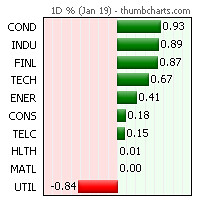Are you wanting high returns from your investments, but you aren't having success? It is a draw for many investors, however very few people have the proper information to be truly successful. Enjoy the following article and it will teach you how to increase your potential earnings and avoid common mistakes in the stock market. "Keep it simple" can apply to stock market investment. Keep your investment activities, such as trading, making predictions, and examining data points, as simple as possible to ensure that you do not make any unnecessary risks on any stocks or companies without any market security. Set small, reachable goals when you first start investing. It is widely known that success and riches from the stock market do not happen overnight without high risk trading, which often leads to serious loss of capital. As long as you're controlling your risks and are not investing too much on unproven stock, you should do just fine. To maximize profitability, think long-term. You'll also be a lot more successful by having realistic expectations as opposed to trying to predict unpredictable things. Hold your stocks as long as you can to make profits. A long-term plan will maximize your returns on investment. You are likely to achieve even greater success if you keep your expectations modest instead of banking on things you cannot predict. In order to maximize your profits make sure you try and hold on to your stocks as long as you can. Prior to committing to any brokerage firm, or placing an investment with a trader, make sure you how much they will be charging you in fees. You want to look into both entry and deduction fees. You will be surprised at how fast these can add up over time.
Home »
» Stock Market Basics And Tips For Every Investor
Stock Market Basics And Tips For Every Investor
Posted by Unknown
Posted on 06.58
with No comments
Stock Market Basics And Tips For Every Investor
Are you wanting high returns from your investments, but you aren't having success? It is a draw for many investors, however very few people have the proper information to be truly successful. Enjoy the following article and it will teach you how to increase your potential earnings and avoid common mistakes in the stock market. "Keep it simple" can apply to stock market investment. Keep your investment activities, such as trading, making predictions, and examining data points, as simple as possible to ensure that you do not make any unnecessary risks on any stocks or companies without any market security. Set small, reachable goals when you first start investing. It is widely known that success and riches from the stock market do not happen overnight without high risk trading, which often leads to serious loss of capital. As long as you're controlling your risks and are not investing too much on unproven stock, you should do just fine. To maximize profitability, think long-term. You'll also be a lot more successful by having realistic expectations as opposed to trying to predict unpredictable things. Hold your stocks as long as you can to make profits. A long-term plan will maximize your returns on investment. You are likely to achieve even greater success if you keep your expectations modest instead of banking on things you cannot predict. In order to maximize your profits make sure you try and hold on to your stocks as long as you can. Prior to committing to any brokerage firm, or placing an investment with a trader, make sure you how much they will be charging you in fees. You want to look into both entry and deduction fees. You will be surprised at how fast these can add up over time.
Are you wanting high returns from your investments, but you aren't having success? It is a draw for many investors, however very few people have the proper information to be truly successful. Enjoy the following article and it will teach you how to increase your potential earnings and avoid common mistakes in the stock market. "Keep it simple" can apply to stock market investment. Keep your investment activities, such as trading, making predictions, and examining data points, as simple as possible to ensure that you do not make any unnecessary risks on any stocks or companies without any market security. Set small, reachable goals when you first start investing. It is widely known that success and riches from the stock market do not happen overnight without high risk trading, which often leads to serious loss of capital. As long as you're controlling your risks and are not investing too much on unproven stock, you should do just fine. To maximize profitability, think long-term. You'll also be a lot more successful by having realistic expectations as opposed to trying to predict unpredictable things. Hold your stocks as long as you can to make profits. A long-term plan will maximize your returns on investment. You are likely to achieve even greater success if you keep your expectations modest instead of banking on things you cannot predict. In order to maximize your profits make sure you try and hold on to your stocks as long as you can. Prior to committing to any brokerage firm, or placing an investment with a trader, make sure you how much they will be charging you in fees. You want to look into both entry and deduction fees. You will be surprised at how fast these can add up over time.


0 komentar:
Posting Komentar